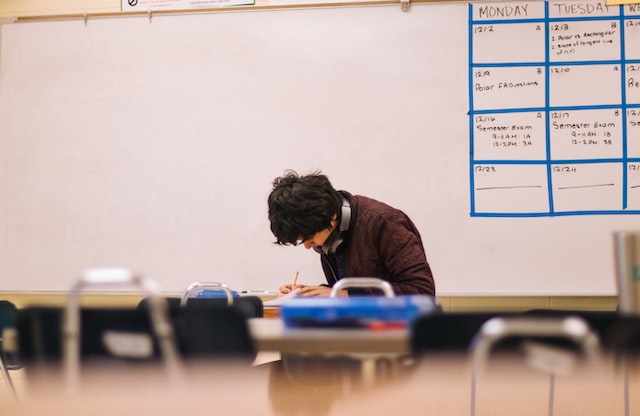Education
December 9, 2018
Prof. S. Ramkumar
EXAMINATION ANXIETY
(The role of teacher revisited in the context of the transition from Online examination to Offline examination)
In the distorted life period of the pandemic, students have undertaken only Online examinations which were taken at home and had a different pattern of answering questions and now with schools and colleges reopening, it is back to the in classroom examinations. This is when the concerns of students, especially those who haven’t undergone an in-physical classroom examination for a long period, need to be genuinely and carefully addressed.

The classes of theory were largely or fully online, which had they’re own modifications in facilitating a situation that suited the pandemic situation (including technology like mobile phones, computers, signals, cost of mobile data..), This may not have been an ideal situation any student or teacher aspired for – but was good enough to help in the context of the world wherein the single prime motto was the control and prevention of the COVID 19 pandemic .
Considering the period from April 2020 to October 2021, students (and teachers) have been through various experiments mainly regarding teaching online and conducting examinations online. These have subject-wise specific opportunities and challenges.
Now, after repeated exposure to online examination there is a transition based on the COVID protocol, with colleges reopening and examinations being conducted in offline mode. There is a great responsibility vested with the Faculty in this period of “come back” to normalcy, to understand a student’s mind ; to get back from the ‘Solitary learner’ mode at home to real class room teaching and examinations.
The COVID-19 period has taught us that Education need not be equal to examination. It’s only a process of evaluation. However, this revival/transition period is now putting back examinations, in position as per the University directions. This transitory period for a student to face an offline examination needs to be empathetically understood.
We need to realize this as ‘teachers’ who need to adapt to support the feelings, ward off the worries, give direction and build confidence among students to write examinations in classroom mode. This is a great moral responsibility vested on us, by the unique time we have gone through and are going through.
From the online to classroom examination, the genuine anxiety should first be taken off from the minds of students. It’s time for us to handhold them to be confident first so that they can concentrate and start studying, rather than worrying on writing an examination and ‘passing it’.
The challenge for a teacher now is not the subject-matter; but the ‘subject”(student) to whom we taught largely in the online period, who have to be calmed. Also need to understand that an examination is not to find out what a student doesn’t know, but rather what a (s)he knows. This transition period is the apt context that highlights and reminds us of this responsibility.
I think considering the constraints of online teaching and earlier online examinations, setting of questions play an important role. We should remember that these are students who have been taught through the online mode, who are appearing for examinations. The fundamentals that a student should know should be a priority, rather than testing deep-knowledge.
Introducing question papers to students in short sessions, model tests, revision of subjects within an hour, skimming through the major titles etc. can build confidence in students to go ahead and appear for the offline exams, since they reassure students of the commitment and handholding of a teacher in supporting them.
Ultimately, when a student writes a classroom examination after a series of online exams during lockdown period, it’s only natural for them to have worries. Teachers need to focus on “subjects” (students) so as to help them deliver the subject matter.
With worries being helped to be warded away, students are sure to perform well in this period of recovery from the pandemic.
Share
Facebook
Linkedin
Twitter
Pinterest